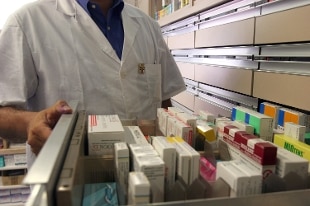Share
20 September 2019The Italian Medicines Agency (AIFA) has ordered the withdrawal from pharmacies and the distribution chain of all drug batches with the active ingredient ranitidine - used to treat gastric problems such as acidity - produced by the Saraca Laboratories workshop in India, due to the presence of a potentially carcinogenic impurity.
This is the N-nitrosodimethylamine impurity (NDMA) of the nitrosamine class, already found in 2018 in some anti-hypertensive (Sartans). AIFA is working with other agencies to assess the degree of contamination. The decision was taken based on the precautionary principle, in order to minimize the risks for the patient, limiting the exposure to the potentially harmful substance.
As a precautionary measure, the Agency has also prohibited the use of all the lots sold in Italy of ranitidine-containing medicines produced by other pharmaceutical companies other than Saraca Laboratories, pending their analysis. Similar measures have been taken or are in the process of being adopted in other EU countries and in several non-European countries.
Furthermore, AIFA also forbade the use of all other drugs with the same active ingredient. This is a list of 516 products, which the Agency invites to use pending controls: from Raniben Cpr to Ulcex Cpr, and again Ranitidina Eg 300 mg, Ranibloc, and also the famous Buscopan antacid, effervescent 75 mg tablets, of which 12 are lots not to be used. And then the Zentiva, the Zantac, the injectable Hexal. The complete list of drugs, both those withdrawn and those currently prohibited (but also a list of those still authorized to date) is available on the website of the Drug Agency at https://www.aifa.gov.it / review-ranitidine.
NDMA is classified as a probably carcinogenic substance to humans by the International Agency for Research on Cancer (IARC) of the World Health Organization (WHO) on the basis of studies conducted on animals. It is present in some foods and in water supplies, but is not expected to cause harm when ingested in very low quantities. Aifa advises citizens, if being treated with a ranitidine medicine prescribed by their doctor, not to stop treatment, but to consult their doctor as soon as possible for an alternative treatment (another medicine other than ranitidine indicated for the treatment of conditions in which the stomach produces excessive amounts of acid).

